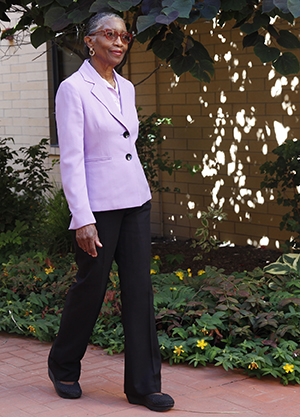Getting Healthy Before Surgery
Now that your surgery is scheduled, you may be wondering how best to get ready for it. Being as physically healthy as possible before surgery is important. It can help shorten your hospital stay and your total healing time. It may also lower your risk for problems after surgery, such as an infection.
Talk with your healthcare provider about making the following health changes in the time leading up to your surgery. It doesn’t matter if you have a few months or only a few days. What you do now can make a difference later.
Be more active

Surgery can be taxing on your body. So it’s a good idea to amp up your fitness level. You may then have an easier time getting back to your daily activities after surgery.
You don’t need to start a whole new workout routine. Instead, focus on being as active as you can be each day. Try low-impact activities like walking, riding a bike, or swimming. But talk with your healthcare provider first to make sure what you choose to do is safe for you.
For some types of surgeries, your healthcare provider may give you certain exercises. Stick with them. They can help strengthen a body part, such as your knee or hip for joint replacement.
Choose healthier foods
The foods you eat can help improve how your body works and heals. Choose nutritious fare, like fruits, vegetables, and whole grains. Also opt for good sources of protein like fish, chicken, and other lean meats. If you’re having heart surgery, making such changes to your diet can help you better control high blood pressure or high cholesterol. Eating healthier foods can also help you lose weight before surgery, if needed.
Based on your health, your healthcare provider may advise that you start taking a supplement. Or you may be told to eat more of certain foods to get vital nutrients like fiber. You may need to see a nutritionist or dietitian for more help.
Quit smoking, if needed
Smoking can impair how well your lungs work. That can make it harder to breathe after surgery. It also puts you at higher risk for a heart attack. But quitting smoking, even if it’s only a few days before your surgery, can help protect you from these problems. It can also help in these other ways:
-
It can speed up your body’s healing process.
-
It can reduce your chance for an infection.
-
It can shorten your recovery from anesthesia.
To take advantage of these benefits, talk with your healthcare provider right away about how you can go tobacco free.
Take these other steps, too
-
Lower your stress levels. Being stressed out can affect your physical and mental health. Try different ways to relax, such as meditation or deep breathing.
-
Don’t smoke and don’t drink any alcohol for at least 24 hours before your surgery.
-
Tell your healthcare provider about all the medicines you take. These include prescription medicines, over-the-counter products, herbs, and supplements.
-
If you have diabetes, keep track of your blood sugar levels. Controlling your blood sugar is important for healing. Your healthcare provider will likely check your blood sugar before surgery.
-
Plan for safe and effective pain control after surgery. Talk with your surgeon about your options for pain control. These include combination strategies and alternative methods, such as guided imagery and relaxation techniques.